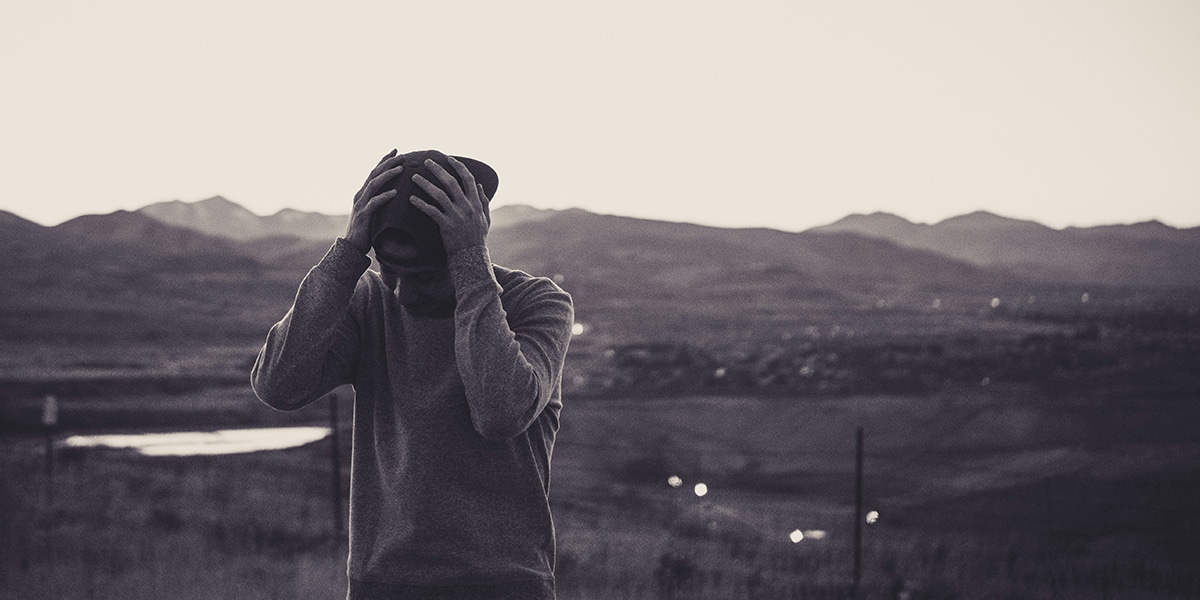One of the core concepts that draws me to Christianity and inspires my spiritual walk today is its integration of both fullness and emptiness, a theme that is on full display during the Lenten season. We find fullness in the metaphor of baptism and emptiness in the proverbial wilderness.
As Vatican Council II stated, “the two elements which are especially characteristic of Lent” are the “recalling of baptism or the preparation for it, and penance.”
It’s interesting to me that in the Gospels we find these themes in back-to-back stories: when Jesus is baptized and is then tempted by the devil in the wilderness. It’s as if the text is screaming at us that we need to understand the fullness of our identity, just as Jesus did at his baptism, so that we can experience the freedom of being emptied, just as Jesus practiced in the wilderness. It’s as if the text is subtly telling us that, just as both of these events occurred before Jesus’ ministry even began, we also need to come back to the fullness of our identity and the emptying of our egos, time and time again, before we ever try to attempt anything else—that our doing must flow from being or else we’ll try to find our salvation in what we accomplish.
It is the fullness of our spirit that empowers us to be emptied in our souls—of our consuming desires and ego attachments that arise within our hearts and minds and make us miserable. And it is the emptying of our souls that makes a clear path back to our core inner truths residing in the fullness of spirit.
Baptism
Several years ago, I almost left Christianity far behind because my experience with it was so psychologically unhealthy. I didn’t have those words for it then, but I do now. It was pounded into my head so much that I was sinner that it was almost impossible to believe I was loved. It was pounded into my head so much that God was angry with humanity (I was told that’s why Jesus had to die) that it was confounding as to why I would want to have a relationship with that wrathful God in the first place. This overwhelmingly negative starting place of lack left me feeling understandably insecure, fully positioned for an identity crisis. Not a fun way to live. A theology that begins with emptiness—our lack—usually doesn’t position people for success. In 2 Timothy 1:7, we read that God has not given us a spirit of fear but instead a spirit of power, love, and self-discipline, but religion keeps trying to make it about fear! As if we need another reason to be hard on ourselves! Religion at its worst just becomes another outlet to beat ourselves up and to judge others.
While breaking down rigid, systematic religion, one of my mentors introduced me to the works of a number of Christian mystics and Catholic authors like Brennan Manning, Henri Nouwen, Thomas Merton, and Richard Rohr, authors who inspired me to believe in two main things about my identity, rooted in both Scripture and tradition. First, that the truest thing about me was not that I was a sinner but rather that I was the Beloved—fully loved, accepted, and understood by the divine. Second, that God was not distant and “out there,” shaking his cosmic finger at humanity in disappointment, but rather mystically united with the object of the affection, us, through the mystery of the Holy Spirit. This starting place allowed me to, for the first time, rest in the fullness of my identity—a stream that I return to, again and again, to be baptized. Spirituality—no longer stressful and shame-inflicting—became about being united with Christ and awakening more and more to who I already was.
In Jesus’ baptism, we read that God’s spirit descended upon him like a dove and that God proclaimed, “This is my beloved son, on whom I am well-pleased.” Jesus’ union with God through the mystery of spirit and his own Belovedness were the two truest things about him. And they are also the truest things about each of us, as Jesus taught us through the incarnation who we really are and how to live out of the fullness of who we are. As Henri Nouwen wrote in Life of the Beloved, “‘You are my Beloved’ revealed the most intimate truth about all human beings, whether they belong to any particular tradition or not.”
Just by being human, you are one with everything, more connected than you’ve ever dared to imagine; and you are loved beyond all measure, fully accepted and affirmed in your humanity. You already have more than what this world could ever give you.
But then, eventually, we’re all pulled out into wilderness, where our Belovedness is put on trial.
Wilderness
To those who are perhaps more disciplined or performance-based in their spiritual practice, this starting place of fullness—of not having to do anything!—can feel like lazy spirituality. But it’s actually the opposite.
Fullness of spirit inspires emptying the ego of its attachments and projections, which is a painful shedding process. In my own life, a posture of being has been far more challenging than being motivated by doing; that’s because, in being, I’m not using anything to convince myself of my worth. Nouwen continued in Life of the Beloved, “I kept running around it in large or small circles, always looking for someone or something able to convince me of my Belovedness. It was as if I kept refusing to hear the voice that speaks from the very depth of my being and says: ‘You are my Beloved, on you my favor rests.’”
I have to realize who I am—and come back to who I already am again and again—or else I know I’m going to go around desperately trying to prove my worth. Spirituality, for me, has become all about allowing the light of Belovedness and my inherent union with Christ to gently permeate every vulnerable aspect of my being and every space in my life where my ego wants to run the show.
When Jesus is tempted in the wilderness, it’s interesting to me that the devil keeps tempting him through different doing-focused ploys:
Turn these stones into loaves of bread!
Throw yourself down from this cliff and let the angels save you!
Fall down and worship me if you want all the kingdoms and glory of the world!
And the phrase the devil uses repeatedly to try to trick Jesus into the endless spiral of doing is: “If you are the Son of God.” The devil is trying to get Jesus to doubt his core identity and inherent fullness of love and spirit. Jesus leans into his core truth instead of being manipulated by the intoxications of affirmation and affection.
On this same note, Buddhism’s Second Noble Truth—that desire and ignorance lie at the root of suffering—couldn’t be more true in my own life. In my ambition (desire), I cling to what I want and in this clinging and tunnel-visioned disposition, I struggle to see the world as it is (ignorance). In one of my favorite books, Zen and the Birds of Appetite, Thomas Merton (who was famously drawn to the beauty of Eastern religions) writes: “The ‘mind of Christ’ as described by St. Paul in Philippians may be theologically worlds apart from the ‘mind of Buddha’…but the utter ‘self-emptying’ of Christ—and the self-emptying which makes the disciple one with Christ in His kenosis—can be understood and has been understood in a very Zen-like sense as far as psychology and experience are concerned.”
Merton later continues: “The real way to study Zen is to penetrate the outer shell and taste the inner kernel which cannot be defined. Then one realizes in oneself the reality which is being talked about.”
Our own penance during Lent is the discipline of self-denial and self-emptying (kenosis). It is choosing to believe in the fullness of who we are even though we are prone to cling to all these things we think we need. Remembering the fullness (and wholeness) at our cores—in our spirits—inspires and empowers us to be emptied in our souls—of the emotional attachments our hearts latch onto for salvation and the obsessive attachments our minds cling to in an attempt to solve our futures. In letting go of our attachments, we empty ourselves, find freedom in the void, and perhaps come into deeper contact with kernel—the truth of all things, where desire and ignorance slip away.








